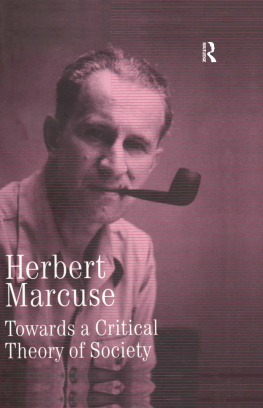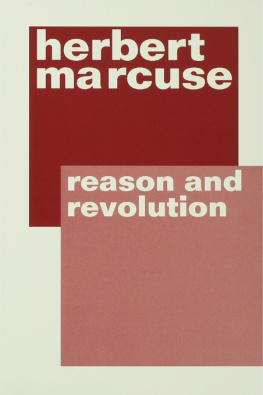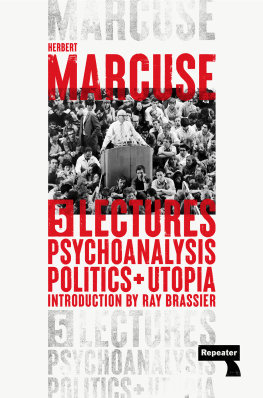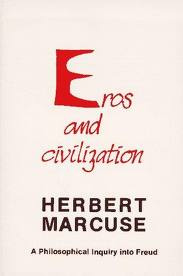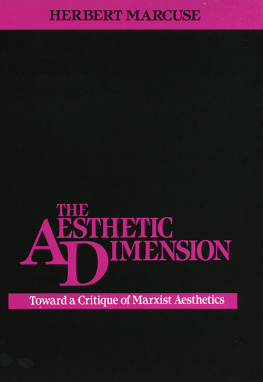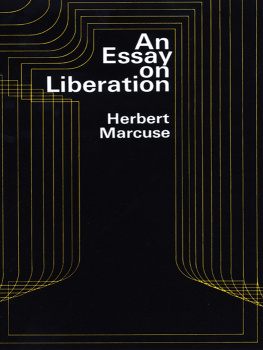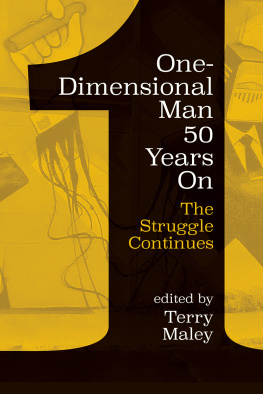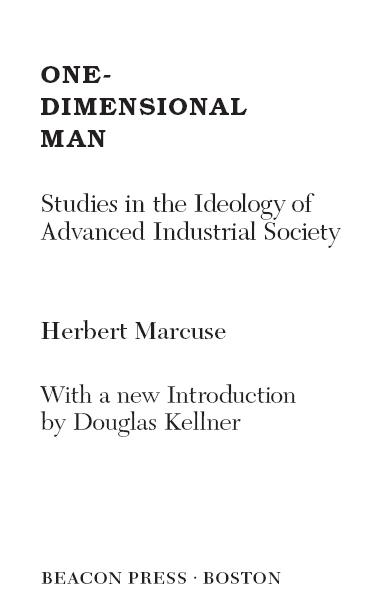
For Inge
Contents
by Douglas Kellner
The Paralysis of Criticism: Society Without Opposition
My wife is at least partly responsible for the opinions expressed in this book. I am infinitely grateful to her.
My friend Barrington Moore, Jr., has helped me greatly by his critical comments; in discussions over a number of years, he has forced me to clarify my ideas.
Robert S. Cohen, Arno J. Mayer, Hans Meyerhoff, and David Ober read the manuscript at various stages and offered valuable suggestions.
The American Council of Learned Societies, the Louis M. Rabinowitz Foundation, the Rockefeller Foundation, and the Social Science Research Council have extended to me grants which greatly facilitated the completion of these studies.
Douglas Kellner
Herbert Marcuses One-Dimensional Man was one of the most important books of the 1960s. Marcuse, in his critique of existing forms of domination and oppression, urges that what is be constantly compared with what could be: a freer and happier mode of human existence.
On one hand, One-Dimensional Man is an important work of critical social theory that continues to be relevant today as the forces of domination that Marcuse dissected have become even stronger and more prevalent in the years since he wrote the book. In a prospectus describing his work, Marcuse writes: This book deals with certain basic tendencies in contemporary industrial society which seem to indicate a new phase of civilization. These tendencies have engendered a mode of thought and behavior which undermines the very foundations of the traditional culture. The chief characteristic of this new mode of thought and behavior is the repression of all values, aspirations, and ideas which cannot be defined in terms of the operations and attitudes validated by the prevailing forms of rationality. The consequence is the weakening and even the disappearance of all genuinely radical critique, the integration of all opposition in the established system.
The book contains a theory of advanced industrial society that describes how changes in production, consumption, culture, and thought have produced an advanced state of conformity in which the production of needs and aspirations by the prevailing societal apparatus integrates individuals into the established societies. Marcuse describes what has become known as the technological society, in which technology restructures labor and leisure, influencing life from the organization of labor to modes of thought. He also describes the mechanisms through which consumer capitalism integrates individuals into its world of thought and behavior. Rather than seeing these developments as beneficial to the individual, Marcuse sees them as a threat to human freedom and individuality in a totally administered society.
Justifying these claims requires Marcuse to develop a critical, philosophical perspective from which he can criticize existing forms of thought, behavior, and social organization. Thus, One-Dimensional Man is also Marcuses major philosophical work, articulating his Hegelian-Marxian concept of philosophy and critique of dominant philosophical and intellectual currents: positivism, analytic philosophy, technological rationality, and a variety of modes of conformist thinking. In this text, he both explicates his conception of dialectical philosophy and produces analyses of society and culture which exemplify his dialectical categories and method. Consequently, One-Dimensional Man presents a model both of Marcuses critical social theory and of his critical philosophy inspired by his philosophical studies and his work with the Frankfurt School.
The Frankfurt School and One-Dimensional Man
During the 1920s and early 1930s Marcuse studied with Martin Heidegger in Freiburg, Germany and intensely appropriated the works of Hegel, Marx, phenomenology, existentialism, German idealism, and the classics of the Western philosophical tradition. While he later broke with Heidegger after the rise of National Socialism in Germany and Heideggers affiliation with the Nazi party, he was influenced by Heideggers critique of Western philosophy and his attempts to develop a new philosophy. He followed Heidegger and existentialism in seeking to deal with the concrete problems of the existing individual and was impressed with the phenomenological method of Husserl and Heidegger which attempted to break with abstract philosophical theorizing and to conceptualize the things themselves as they appeared to consciousness.
In his early works, Marcuse himself attempted to synthesize Heideggers phenomenological existentialism with Marxism, and in One-Dimensional Man one recognizes Husserlian and Heideggerian motifs in Marcuses critiques of scientific civilization and modes of thought. In particular, Marcuse develops a conception of a technological world, similar in some respects to that developed by Heidegger, and, like Husserl and Heidegger, sees technological rationality colonizing everyday life, robbing individuals of freedom and individuality by imposing technological imperatives, rules, and structures upon their thought and behavior.
Marcuse thought that dialectical philosophy could promote critical thinking. One-Dimensional Man is perhaps Marcuses most sustained attempt to present and develop the categories of the dialectical philosophy developed by Hegel and Marx. For Marcuse, dialectical thinking involved the ability to abstract ones perception and thought from existing forms in order to form more general concepts. This conception helps explain the difficulty of One-Dimensional Man and the demands that it imposes upon its reader. For Marcuse abstracts from the complexity and multiplicity of the existing society its fundamental tendencies and constituents, as well as those categories which constitute for him the forms of critical thinking. This demands that the reader also abstract from existing ways of looking at society and modes of thinking and attempt to perceive and think in a new way.
Uncritical thinking derives its beliefs, norms, and values from existing thought and social practices, while critical thought seeks alternative modes of thought and behavior from which it creates a standpoint of critique. Such a critical standpoint requires developing what Marcuse calls negative thinking, which negates existing forms of thought and reality from the perspective of higher possibilities. This practice presupposes the ability to make a distinction between existence and essence, fact and potentiality, and appearance and reality. Mere existence would be negated in favor of realizing higher potentialities while norms discovered by reason would be used to criticize and overcome lower forms of thought and social organization. Thus grasping potentialities for freedom and happiness would make possible the negation of conditions that inhibited individuals full development and realization. In other words, perceiving the possibility of self-determination and constructing ones own needs and values could enable individuals to break with the existing world of thought and behavior. Philosophy was thus to supply the norms for social criticism and the ideal of liberation which would guide social change and individual self-transformation.
It is probably Marcuses involvement with the Critical Theory of the Frankfurt School that most decisively influenced the genesis and production of One-Dimensional Man. After the emergence of Heideggers public support of National Socialism, and just on the eve of the triumph of the Nazi party, Marcuse had a job interview with the Frankfurt Institute for Social Research, received a position with them, and joined them in exile after Hitlers ascendancy to power. First in Geneva, Switzerland, and then in New York, where the Institute affiliated with Columbia University, Marcuse enthusiastically joined in the Institutes collective attempt to develop a critical theory of society. Along with the Institutes director, Max Horkheimer, Marcuse was one of their philosophy specialists. He began his work with the Institute by producing a critique of fascist ideology; having turned away from his former teacher, he now appraised Heideggers work as part of the new tendency toward totalitarian thought that was dominant in Germany and which threatened the rest of the world as well.
Next page

